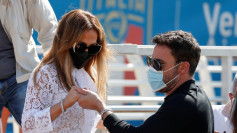Copyright Infringements are tough, especially if laws weren't prepared for the internet society nowadays. Because of this, business opportunities online emerged and lacked the proper guidelines needed.
As a personal account, some entities cannot just halt what they are posting because of freedom of speech and the lack of address to where this personal account should be apprehended.
Just in the case of Ariana Grande who have already been using "the photos" taken by a photographer since last year, the tracking of evidence can be quite hard. And although it was already removed by Grande's account admin, damages in the rights of the photographer have already been done.
Another thing also is that "the photos" have already reached an estimated 3.3 million likes; however, the Instagram account alone has 154 million followers.
The New York-based photographer, Robert Barbera filed a lawsuit against Ariana Grande and her company, Grandari, on Monday in the U.S. District Court for the Southern District of New York.
Court documents revealed that the Thank U, Next songstress, and her company did not ask permission from Barbera to use the photos or even gave him credits or compensation for posting Grande's pictures taken by himself. The photographer is asking for either profit she received from the photographs, or $25,000 for each one, whatever amount is greater.
Take note, that during her Sweetener World Tour, a policy was handed to the National Press Photographers Association (NPPA) with the standard terms and conditions for every concert Photographer. It required photographers to hand over all rights to their photos to Grande's tour company, GrandAriTour, Inc.
It also prohibits the use of flash and dictates that photogs are only allowed to take still shots from a designated area (not the pit) during the first three songs. If the photographers wanted to use their pics, they have to get then written approval from Grande.
The strict photography policy was protested by over 12 more entities like the Associated Press, New York Times, Los Angeles Times as they joined in with NPPA. However, the 7 Rings hitmaker's reps firmly held on to the new policy, reiterating the rights of the artist whenever her photos were shot in concert.
Photographers would take as many pictures of her as they wanted and then, shortly after, merch she didn't approve of would hit the streets with those photos emblazoned on the items and then turned around to use those to make a profit.






